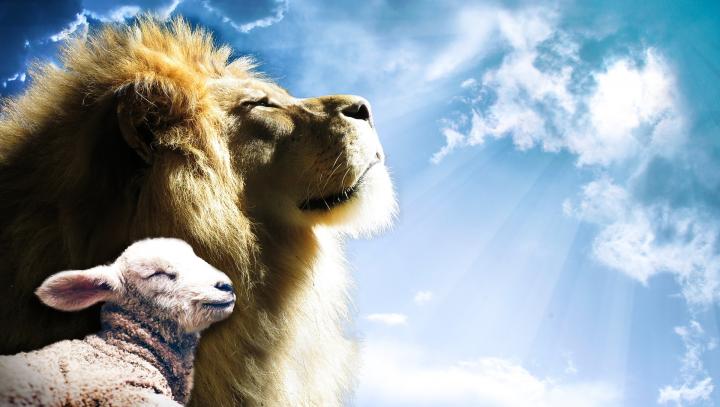“In like a lion, out like a lamb!” March is well known for its temperamental nature. Will this old proverb prove true this year? Find out in our March forecast and get a sneak peek at the weather for the 2024 Total Solar Eclipse in April.
Total Solar Eclipse Weather Forecast
The total solar eclipse on April 8 is now right around the corner. The path of totality (where the Sun will be completely blocked for a few minutes) will run from Texas and Arkansas up through the Ohio Valley and into northern New England. Parts of Ontario, Quebec, and Atlantic Canada will also witness totality. Read more about the 2024 Total Solar Eclipse to make your plans.
Weather will likely play a more significant role in viewing this time than it did for the U.S.’s west-to-east eclipse in August 2017. This is because a completely overcast sky is less common during the summer, and clouds are more likely in the spring. Now, because the April 8 eclipse will be tracking across the eastern U.S. and Canada—where storms regularly move through—the probability of cloud cover over the path is greater than it was before.
We believe that the best prospects for clear-sky viewing will be found in Texas and Arkansas. Historically, there is a better chance of clouds farther north and east, especially from the Great Lakes to New England and into Canada. You’ll find your best chances for cooperative weather in places like Dallas and Little Rock. This is suggested not only by climatological history but also by the fact that our forecast calls for dry weather in these places on April 8.
Viewing will be more of a gamble in spots like Cleveland, Buffalo, and Montreal, where clouds are more common. Although our April forecast does call for rain in the Ohio Valley on the 8th, skies do look to be mainly dry from the Great Lakes and New England up into Quebec and Atlantic Canada. Check out our article about the best places to see the 2024 total solar eclipse.

March 2024 Weather Predictions
We expect an early start to spring across much of the U.S., with above-average March temperatures along the East Coast (except for Florida), in the eastern Ohio Valley and Great Lakes, from the Deep South up into Texas and Oklahoma, on the West Coast, and in Alaska. Near- to below-average temperatures are largely anticipated elsewhere. Look for a warmer-than-normal month in most of Canada, except for southern Ontario, the eastern Prairies, and the Northwest Territories.
March will be pretty dry in much of the East, except for the southern Appalachians, as well as in the northern Rockies, Pacific Northwest, and Hawaii. Other areas should expect more rain than usual. Canada will also see above-average precipitation, except for near- to below-average amounts from British Columbia up into the Yukon.
Early spring will continue into April and May, with near- to above-average temps arriving in much of the U.S.; however, the western Ohio Valley, Upper Midwest, and portions of the Plains will be cooler than normal. Although Canada will have chilly weather in Ontario, the Prairies, B.C., and the NWT, some early warmth is likely elsewhere. The U.S. West Coast will have a drier spring, while near- to above-average precipitation levels will be the case in other locales. The dry season should end earlier this time around in California, which could be a factor heading into the wildfire season. Much of Canada will see above-average precipitation throughout April and May, although northern parts of the Maritimes and western British Columbia will be drier.
While the West will be on the warmer side, we expect most areas in the U.S. to be pretty chilly on Easter Sunday, March 31. A few rain or snow showers may occur in New England and the Appalachians and scattered showers in Hawaii, but much of the mid-Atlantic region and Southeast will be dry for sunrise services and parades. Some rain or snow will likely move through the Ohio Valley and Great Lakes, Pacific Northwest, and Alaska, while the Deep South, much of the Plains and Rockies, and Southwest will mostly be dry for Easter egg hunts.
Canada will be cold in many areas on Easter Sunday. The best chances for snow (and perhaps some rain) will occur in the Maritimes and southern Quebec, with possibilities for pockets of snow and rain showers elsewhere.
→ See our long-range weather predictions for your region!

“In Like a Lion, Out Like a Lamb”
Now, back to this proverb. If you think about it, it makes sense for March. It’s a transitional month, starting with winter and ending with spring.
Where did this proverb come from?
It’s appeared over the centuries. John Ray (1627–1705) was a naturalist who wrote, “March hack ham [hackande = annoying] comes in like a lion, goes out like a lamb.” This is published in the “Catalogue of English Proverbs” in 1670. The phrase “March came in like a lion” shows up in Ames Almanac in 1740.
A favorite theory (which fits the Almanac) is that the proverb is based on astronomy and the positions of the constellations. At the beginning of the year, we have Leo the Lion (eastern horizon); by the end of March, it’s Aries the Ram (western horizon).
There have also been religious associations: Jesus arrives as the sacrificial lamb at Easter but will return as the Lion of Judah. Weather-wise, this means a false spring.
Of course, the Almanac has many other March proverbs in its archives. Here are a couple that have lasted the ages:
- So many mists in March you see,
So many frosts in May will be. - March comes in with adders’ heads and goes out with peacocks’ tails.
They aren’t quite as memorable as the lion and the lamb!
Spring Weather On the Way
Spring starts officially on Tuesday, March 19, 2024—the date of the spring equinox! But it looks like the weather may be spring-like before that!












